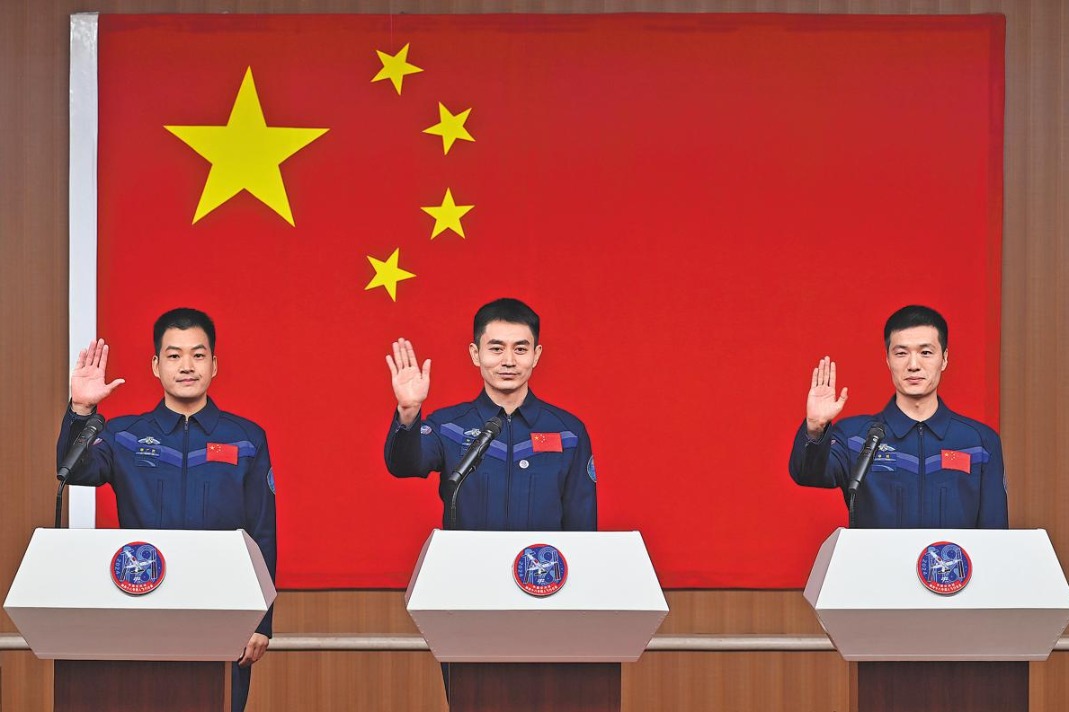Neighborhood diplomacy works wonders


China's neighborhood diplomacy has yielded positive results in recent years, including improvement in relations with several countries with whom China has had disputes. This is certainly a positive trend in China's foreign policy, which can be attributed to the country's diplomacy in the new era, which is totally different from the US' irresponsible behavior on the global stage.
China's willingness to share the fruits of its remarkable economic development has been acknowledged worldwide. And President Xi Jinping attaches great importance to globalization, as it allows China and the rest of the economies to achieve mutual development and jointly shoulder the global responsibilities.
In contrast, thanks to US President Donald Trump's "America first" policy, the United States has withdrawn from several multilateral agreements, such as the Paris climate accord and the Iran nuclear deal, inviting worldwide criticism. The Trump administration's unilateral moves not only violate the principles of global agreements and protocols, but also have harmed global trade, security and politics. But, in a way, the US' protectionist moves have also prompted some countries to seek equal benefits through cooperation.
On the other hand, China's maritime diplomacy with countries such as Vietnam, the Philippines and Malaysia have proved successful since the 19th National Congress of the Communist Party of China. Also, negotiations with the Association of Southeast Asian Nations and the Declaration on the Conduct of Parties in the South China Sea have helped China improve its relations with many of its neighbors. For example, China and Singapore have deepened cooperation and communication in culture, economy and high-tech, including artificial intelligence technology.
Also, Sino-Japanese relations, a thorny issue, have been warming up in recent weeks despite the challenges ahead. In fact, the year 2018, which marks the 40th anniversary of the China-Japan Treaty of Peace and Friendship, has been good for Sino-Japanese ties, though the two countries still have many disputes over territory and history.
Japanese Foreign Minister Taro Kono visited China in January and agreed to make joint efforts to overcome the challenges posed by a fast-changing world. And Premier Li Keqiang, during his official visit to Japan, inked a memorandum on May 9 to strengthen cooperation in service trade.
Besides, Indian Prime Minister Narendra Modi's "informal" summit with President Xi in Wuhan, Central China's Hubei province, last month signaled the warming up of Sino-Indian relations after the border standoff at Donglang (Doklam) last year. If the world's two largest developing countries deepen cooperation, they can help further promote stability and development in South Asia.
And the two recent meetings between Xi and Democratic People's Republic of Korea leader Kim Jong-un, which further strengthened the two countries' ties, complete China's neighborhood diplomacy. The meetings, for which Kim traveled to China in April and May, showed China remains committed to contributing to the negotiations to resolve the Korean Peninsula nuclear issue.
For the past year, the peninsula had been facing the threat of war. Washington imposed stricter sanctions on Pyongyang for conducting nuclear and missile tests, with Pyongyang upgrading the tests in response. But since Pyongyang sincerely wanted to negotiate the peninsula issue with the Republic of Korea and the US, it helped accelerate the process of restoring peace on the peninsula.
The inter-Korean summit on April 27 issued the Panmunjom Declaration for Peace, Prosperity and Unification of the Korean Peninsula and thus laid a concrete foundation for the planned Kim-Trump meeting in Singapore on June 12.
The improvement in the peninsula situation also promoted China-ROK relations, creating opportunities for the development of Northeast Asia. Now the need for China is to continue working for peninsula peace, and making efforts to restore complete economic cooperation with the DPRK, which suffered because of the tensions on the peninsula.
China’s achievements in neighborhood diplomacy reflect that China has an extended ascent toward, what Carl von Clausewitz described as, the “culminating point of victory”, the moment in a battle that an attacking force, after having achieved success, has to halt its advance and consolidate its gains. Which will influence the development of China’s overall diplomacy in the long run.
The author is a professor at the School of International Studies, Renmin University of China.


































